Casablanca (1942)
“It doesn’t take much to see that the problems of three little people don’t amount to a hill of beans in this crazy world.”
|
Synopsis: |
|
Genres, Themes, Actors, and Directors:
Response to Peary’s Review: While it’s hard to know just how much of the script is original (Peary argues “it hasn’t been sufficiently acknowledged that almost everything in the film was in Everybody Comes to Rick’s, the unproduced source play by Murray Burnett and Joan Alison”), it’s difficult to find fault with the end result: a remarkably intelligent and witty screenplay, co-written by (among others) the Epstein twins (Julius and Philip) and Howard Koch. In addition to its countless now-iconic lines (“Here’s looking at you, kid”), one particular exchange — between Rains and a police inspector as Rick’s Cafe Americain is about to be shut down for gambling — remains a personal favorite, and has me giggling with delight every time I hear it. Much has been made about the fortuitous casting behind Casablanca, with Bogart and Bergman making a most unlikely yet inspired pair of star-crossed lovers. Bogart — who Peary refers to as “tough, introspective, ugly” — hits just the right notes of vulnerability and machismo, and, once we learn his backstory with “soft, generous, beautiful” Bergman, it’s easy to see why he’s remained so cynical and bitter for so long. Claude Rains nearly steals the show, however, in yet another stand-out performance: he manages to transform the corrupt overseer of Casablanca from a potential villain into a three-dimensional protagonist who’s both human and humorously droll. Rains’s friendship with Bogart — which evolves over the course of the film — adds yet another level of nuance (and, perhaps, “romance”) to this complex, emotionally charged story, one which will likely continue to delight audiences for decades to come. Redeeming Qualities and Moments:
Must See? Categories (Listed in 1001 Movies You Must See Before You Die) Links: |
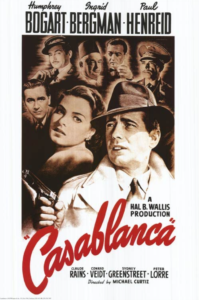
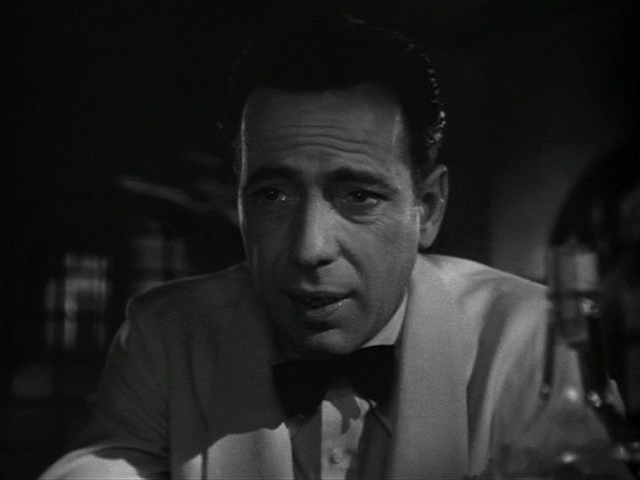
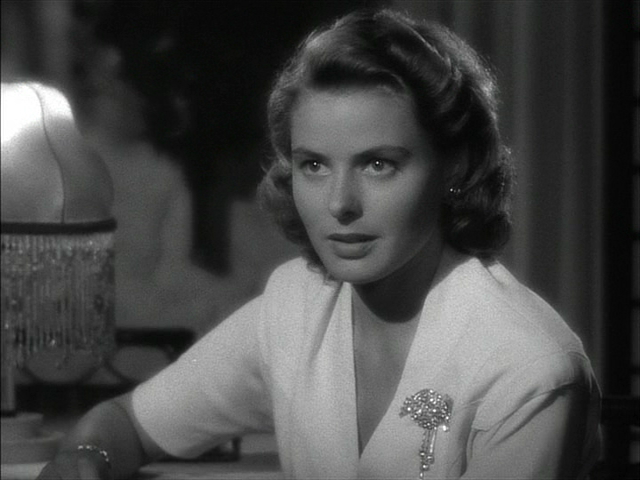
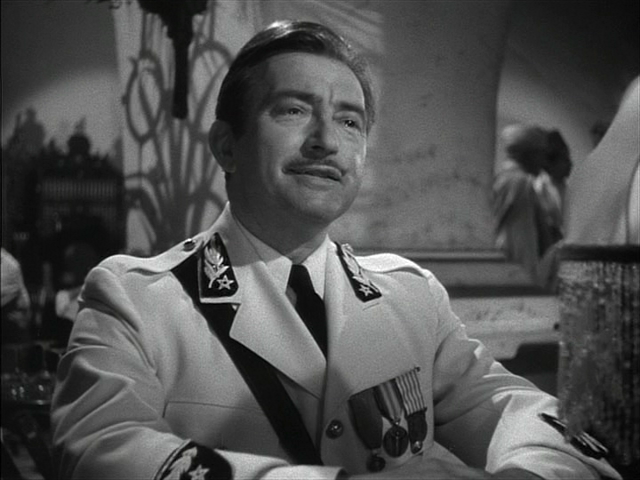
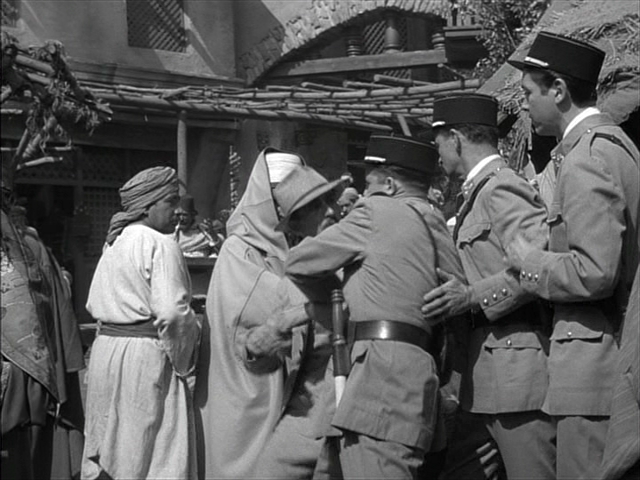
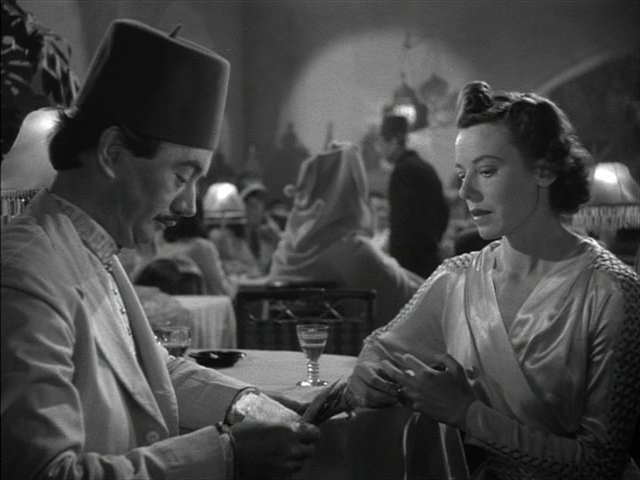
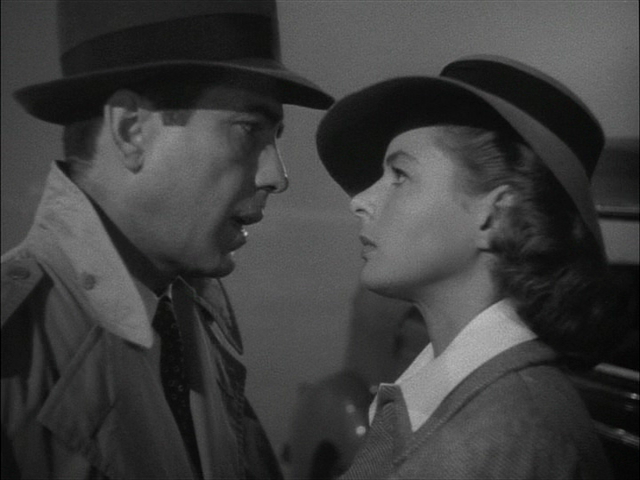

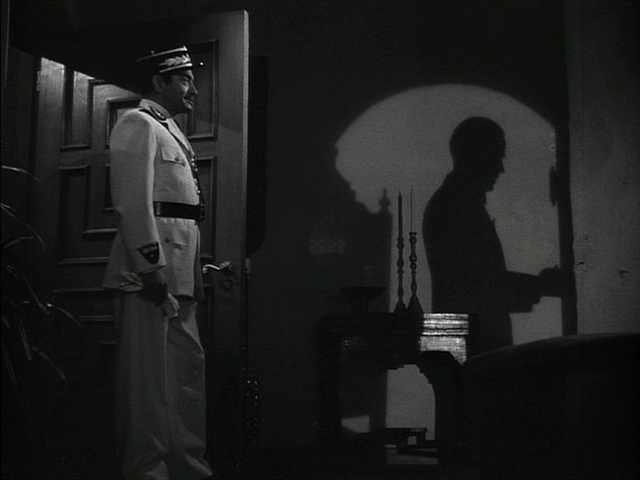
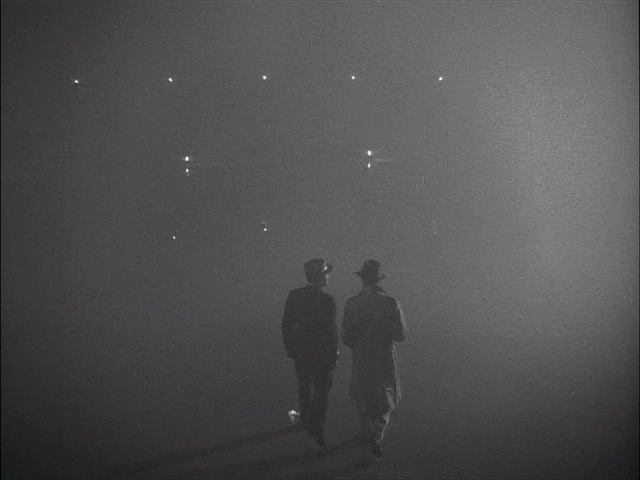

One thought on “Casablanca (1942)”
A must? Well, duh! Having just watched it after many years, I see all over again why this is certainly one of the best movies of all time (even if I wouldn’t call it a personal favorite).
For ffs (and to borrow a phrase from ‘What Ever Happened to Baby Jane?’), seeing it again is like seeing an old friend. Peary has, of course, detailed its elements (though he seems to downplay its musical numbers/interludes) – and what they add up to is sublime entertainment that is also fiercely cinematic. The extremely literate script (which must be pretty thick) has some of the meatiest dialogue ever, and it plays like one long, rather explosive verb (with a few breathing spells tossed in).
I particularly love its sense of atmosphere. The film feels other-worldly: it’s peppered with various languages (mostly German and French), and the various miniature ‘subplots’, either introduced early on or shown throughout, remind us that there are lots of ‘worlds’ contained within the story.
I take issue with Peary’s remark that the film has a “confusing [and] overloaded” storyline. In fact, I find the film clear as a bell – and complex, as opposed to overloaded. And the clarity is in the details of the dialogue: i.e., at one point in the flashback, Bergman says to Bogart re: getting married, “That’s too far ahead to plan.” If you note earlier in the film, that has become Bogart’s noncommittal catch-phrase for all of his subsequent (apparent) one-night-stands.
At some point, I think I read somewhere (and who knows if this is true?) that, during production, ‘Casablanca’ – like ‘Annie Hall’ – was considered something of a mess until it got into the editing room, where supposedly ‘magic happened’. Hard to believe.
Though it’s true that the leads are particularly well cast, the supporting cast is jaw-droppingly good: Peter Lorre (in an elevated cameo – here proving once again that “there are no small roles”), Conrad Veidt, Sydney Greenstreet, S.Z. Sakall, Dooley Wilson – all are memorable, as are many others in this cast of many vivid characters.
And, of course, the whole thing is beautifully executed by Curtiz and exquisitely lit by Edeson. And the final episode at the airport makes for one of the best closing sequences in film history.
One top-notch flick!
Fave visual: Bergman’s note is delivered to Bogart at the train station, and the writing on it dissolves in the rain as he reads it.
Fave line belongs to Bogart: “Tell me – who was it you left me for? Was it Laszlo, or were there others in between, or…aren’t you the kind that tells?”